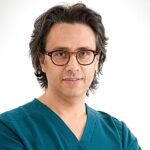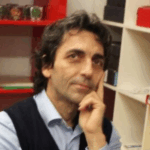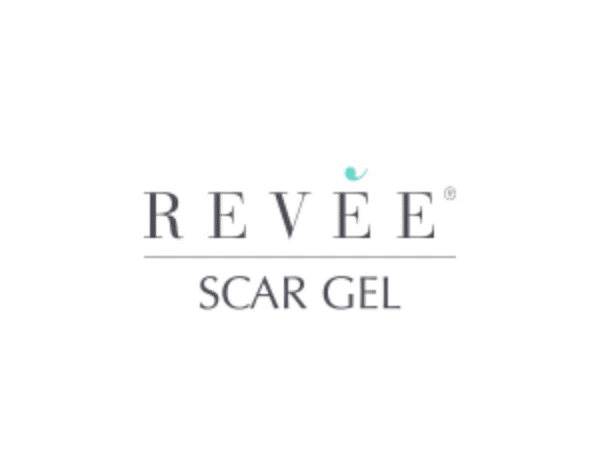Medical doctors and Surgeons
Heredity in breast cancer. How crucial is it? The opinion of the oncologist Nicola Rocco
«I am confident, and we need to wait for the results of clinical studies. In the next ten years, we will see innovative therapies that target the immune system and even ‘vaccines’ for cancer.»
Nicola Rocco, breast surgeon, oncological surgeon, and oncoplastic surgeon, works at the Breast Unit of the Federico II Hospital in Naples and is the scientific director of GRETA
The heredity of tumor phenomena is a much-discussed topic, especially when it comes to breast cancer. The case of actress Angelina Jolie and other famous figures has brought complex thematic issues to the forefront, helping raise awareness about the disease but also creating confusion in terms of information. Breast cancer is indeed one of the most common oncological diseases among women worldwide. It is a complex clinical entity that deserves the utmost attention in terms of diagnosis, treatment, and research. Nicola Rocco, a breast surgeon, oncological surgeon, and oncoplastic surgeon, works at the Breast Unit of the Federico II Hospital in Naples and is the scientific director of GRETA. He has a deep knowledge of breast cancer and all its facets.
Inheritance of cancer and early diagnosis

The question of heredity in breast cancer is important, but it is not the only one to pay attention to. The case of Angelina Jolie is the one that brought to light the issue of hereditary-familial carcinomas of the ovary and breast. If we look at Italian news, we certainly also remember the case of Bianca Balti, who has recently undergone preventive breast surgery. «Familial hereditary risk exists, but it is important to understand that in most cases, breast tumors related to a hereditary factor occur in women with no significant family history» says Rocco. According to statistics, 15-20% of cases are considered familial, meaning there is more than one affected family member. There is also a 5-10% of cases where the tumor is purely hereditary, associated with specific genetic mutations that can be passed on to children. This does not mean that children will inherit the tumor, but they will be more predisposed to developing it compared to the general population. There are various hereditary familial syndromes, and breast and ovarian cancer are mainly linked to mutations in the BRCA1 and BRCA2 genes (Breast Cancer 1 and 2).
From mother to daughter: What should you do if heredity is a concern?
Not all children inherit the genetic mutation, but it is important to pay closer attention and rely on a multidisciplinary team specializing in hereditary familial tumors, composed of oncogeneticists, medical oncologists, psycho-oncologists, oncological surgeons, and plastic surgeons. «The goal is to receive an early diagnosis if breast cancer were to develop » explains the doctor. Based on the evaluation of the individual family history by medical professionals and the woman’s preferences, the patient may choose to undergo dedicated surveillance programs with regular clinical checks and imaging exams. «Or she may choose the option that Jolie and Balti have taken, which is to consider risk-reduction surgery, both for the breasts and ovaries » Rocco points out. However, even in this case, the risk of developing cancer is never completely eliminated.
Early detection of breast cancer is crucial because it allows for effective treatments that can nowadays ensure complete recovery in most cases. «The first step is regular self-examination » says Rocco. This practice is useful for detecting changes that should be subsequently shown and studied by a specialist. After the age of thirty, mammograms become very useful, and annual ultrasounds after the age of forty help ensure everything is under control.
A cancer vaccine: science fiction or reality?
Research is rapidly evolving to find new ways to combat cancer. «In recent years, molecular mechanisms underlying our immune system’s response to tumors have been extensively studied,» explains the oncologist. This understanding could lead to new forms of immunotherapy for breast cancer and cancer in general.
«Every day, our immune system recognizes potentially harmful cells in our body» Rocco continues. «However, when tumor cells are no longer recognized by our immune system, the cancer can progress and manifest clinically.» Understanding how tumors manage to evade the immune system or even recruit its components to promote their development would be crucial for defeating cancer. The solution, Rocco suggests, could be immunotherapy: a system of drugs similar to vaccines that can restore the body’s natural defenses and autonomously eliminate the tumor.
In addition to cancer treatment, research is also advancing in prevention: the goal is to simplify disease recognition by using substances released by tumor cells, called biomarkers. «Detecting these biomarkers is the most promising avenue for early cancer diagnosis in the future,” Rocco confidently states. «But I want to emphasize that these techniques are still experimental and not yet validated.»
Research and outreach to conquer cancer
Sharing knowledge and progress and training personnel are the essence of healthcare professions working in oncology departments or Breast Units. «As the scientific director of the GRETA Foundation, I organize the MBM Congress, Milan Breast Meeting, every two years» says Rocco. «This year, it will take place from December 13th to 16th, and we will address the main themes related to oncoplastic breast surgery».
Another congress of particular importance to the field is ESSO (European Society of Surgical Oncology), a congress that will be held in Florence from October 13th to 15th and will focus on cancer as a whole. «The goal is to provide a 360-degree view of surgical cancer treatment because it is through multidisciplinary treatments that the chances of recovery increase by up to 20% » concludes Rocco.








































